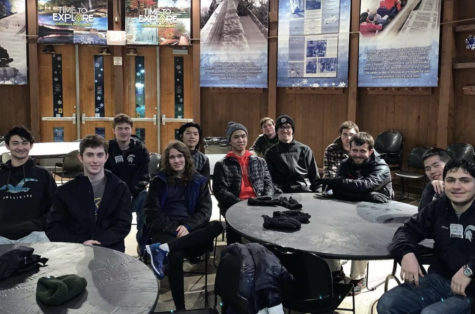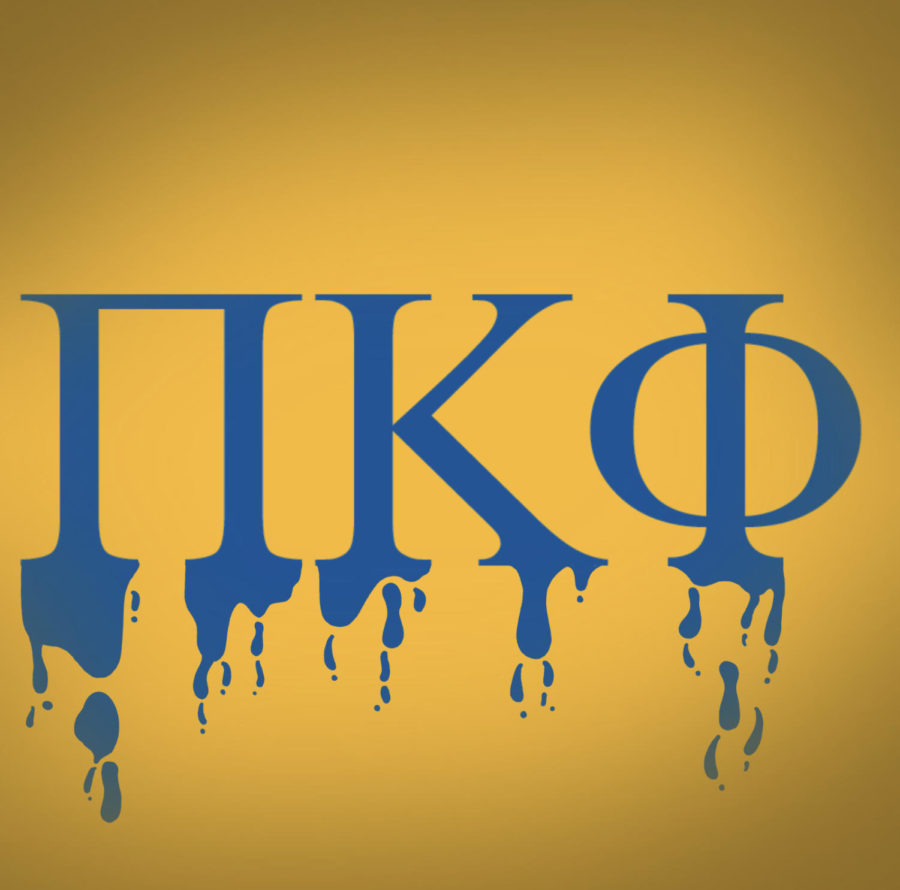The death of a CWRU fraternity
Pi Kappa Phi is shutting down. What led to its demise?
April 21, 2023
There’s a crisis brewing around Greek Life at Case Western Reserve University. For as long as anyone can remember, being a part of a fraternity or sorority has been a huge part of campus life at CWRU, but its presence here is slowly but surely diminishing.
Since the early 2000s, Greek Life participation in the campus population has generally remained around 30%. While there were years of unprecedented growth in the early 2010s, with Greek Life levels reaching 42%, it slowly regressed back to the 30% mark towards the end of the decade.
When Thomas Harrison Rhodes, a current fourth-year computer science student, came to CWRU in fall 2019 and joined a fraternity, 29% of CWRU undergraduates were part of a Greek chapter, including 28% of men. Just one year later, those numbers would fall to 24% and 20%, respectively. They haven’t rebounded since, with the Greek Life office today reporting a 25% participation rate. While some chapters have been able to maintain stability in their number of members, others continue to shrink. Now, facing their lowest recruitment numbers in history, Rhodes’ chapter is shutting down.
On May 22, the CWRU chapter of Pi Kappa Phi, colloquially known as Pi Kapp, will close its doors for good. But how did it happen? What factors led to Pi Kapp’s struggles? And what can its story over the last four years tell us about the state of Greek Life at CWRU? To find out, I spoke with Rhodes, fourth-year art history student DavidPatrick Ryan and fourth-year psychology student Eric Liu about their time in Pi Kapp and why they ultimately decided to shut down their own chapter.
“It wasn’t like most of the fraternities,” Rhodes said. “Some fraternities have their reputations for being fraternities. Pi Kappa Phi wasn’t like that.”
“I really wasn’t interested in Greek Life from the start,” Ryan added. “Pi Kapp made me realize it was a fraternity I wanted to join … I realized it’s a great group of guys that I could have meaningful conversations with and a good social life.”
“We were like the model fraternity,” Liu said, emphasizing the fraternity’s high average GPA and constant commitment to service projects. “We’re not so focused on partying, but our social culture is more service oriented and we focus more on our philanthropy.”
The point that all three emphasized was that they felt Pi Kapp was something truly special. Despite always being relatively small, with around 18 members in 2019, they described it as a vibrant chapter, filled with brothers that all had diverse interests and backgrounds. Something they prided themselves on was the fact that most of their members were “people who didn’t think they were going to join frats, but ending up loving it,” as Ryan put it. All this made Pi Kapp an interesting part of the Greek Life fabric at CWRU. While they may not have had a house, they were able to find a place on campus together, and nonetheless were a home for CWRU students. That home will soon be gone.

There were already signs of trouble in the 2019-2020 academic year, with a rush class of two in the fall and four in the spring; but compared to future rush classes, those would look quite sizable in retrospect. When the COVID-19 pandemic hit in March 2020, activities across all Greek Life chapters suddenly came to a standstill. The reason why most joined Greek Life in the first place—social interaction—was suddenly gone. Unsurprisingly, Pi Kapp started bleeding members. Many upperclassmen left the chapter for a variety of reasons, and others graduated, leaving behind a small group of mostly underclassmen to deal with the fallout of the social distancing era. Sure, there were remote “Among Us” video game nights and Zoom gatherings, but the fraternity could never go back to how it was before.
Amidst all of this, the @cwru.survivors Instagram account emerged, a space for victims to share their stories of sexual violence at CWRU, many of which happened at fraternities or by fraternity members. As a result, the reputation of Greek Life reached an all time low. Pi Kappa Phi had at least five references in accounts from anonymous survivors—a substantial amount but below the likes of Zeta Psi’s 30 references and Zeta Beta Tau’s 16. Regardless, the CWRU community had begun to reckon with their own culture of sexual violence and fraternities did not come out looking good. Zeta Psi was removed as a chapter at CWRU as a result. Between the lack of actual recruitment events due to the pandemic, the loss of the social benefits of Greek Life, the cost of remaining in a chapter and the besmirched reputation of fraternities, it’s no wonder that participation by CWRU men in fraternities dipped so drastically from 28% in 2019 to 20% in 2020.
While Pi Kapp was smaller than before, members were still optimistic about a rebound once the pandemic eased and people could rush fraternities normally once again. However, once that time came in fall 2021, Pi Kapp still saw abysmally low recruitment numbers.
“I don’t think there was anything more we could have done,” Ryan said, describing how their diminished size impacted their ability to recruit. “Once you become smaller, it becomes more apparent that you’re using all of your energy to do each event. I think people picked up on it.”
“We put all a lot of our energy into recruitment events, and then the administrative overhead became too much to do much else,” Rhodes concurred.
“Even active members, like members who were active during COVID, found it very, very difficult to deal with the sudden loss of manpower,” Liu added.
With so few members, the chapter couldn’t even fill up their executive board, let alone host the social events that got people interested in joining them. However, the administrative work of running Pi Kapp remained. This created a doom spiral of decreased size leading to more work having to be done by each member and less socialization, which caused people to either leave or not want to join in the first place—all further reducing the size of the chapter.
Requirements from the Interfraternity Council (IFC) didn’t help, with their expectations being the same for Pi Kapp as they would be for a larger fraternity, despite the fact that Pi Kapp did not have enough members to actually attend each required meeting. Liu described the resulting consequences as “bureaucratic burnout.”
“There are mandatory events or mandatory meetings that members of the executive board have to go to that correspond with their position,” Liu explained. “For our chapter, the reason why that was an issue was because having less individuals just doesn’t allow for much forgiveness. If we miss a meeting, because if someone has something come up—like for example, one time we had someone who hurt their foot, and had to get surgery and couldn’t make a meeting, and someone had to cover for them last second. That’s very, very difficult when you have not as many members.”
“We’ve received the punishments because … of our restrictions,” Ryan added. “Because we wouldn’t have the manpower to host all these events properly that were required, and then fill out the forms regarding them to meet standards.
“So, say a large chapter doesn’t host a [Diversity, Equity and Inclusion] event or an alcohol training event for their new members. That might be because they didn’t put the time and effort to do it, whereas with Pi Kapp, maybe there’s one of the two because we only could staff one of the two. And then we get in trouble for not being able to do this.”
Missing these meetings and being unable to host all required events led to the chapter being considered to be in “bad standing,” meaning Pi Kapp was unable to request money or support from IFC for their events. As a result it was even harder for Pi Kapp to hold the social, recruitment and service events that drew in potential members because of their lack of funding. Having less dues as a result of their smaller member pool, they also had fewer funds to fall back on when IFC’s support was cut off, making it an even heavier consequence.
“It limits what a small chapter can do, because the effects are disproportional,” Liu said. “Also, because we’re a younger chapter, we don’t have a large alumni network to support the chapter.”
“As time progressed, it became more and more dealing with the administrative side of running a fraternity rather than just having fun,” Ryan stated. “When you have to spend more time doing administrative tasks, there’s less reason to join.”
The group bemoaned the general lack of support from IFC aside from the inflexibility in standards for a smaller chapter. Altogether they described poor communication from those in charge of recruitment surrounding IFC’s plans, a lack of clarity on community standards and enforcement, an organizational structure that leads to disinterested members and unproductive meetings, inadequate promotion of funding options, inadequate planning surrounding mandatory events, a sense of complacency throughout IFC and a refusal to look at the issues leading smaller fraternities to struggle so much, each ultimately causing Greek Life to be diminished even further. Without smaller fraternities being present, a portion of CWRU students not interested in the stereotypical version of Greek Life may just turn away from the system altogether.
“I’m not calling anyone apathetic; I just think they don’t see it as an issue,” Liu said. “But I can assure you that next semester [other smaller chapters]—if they can’t recruit a good sized class—they will also be dissolving next semester, and I feel like the same thing is going to happen [as what happened with us].
“The general body, with the [fraternity] presidents all there, will just hear someone announce that they’re dissolving and treat it as ‘Oh, well. There goes another one.’ And it feels like there’s nothing being done to help us stay on campus.”




